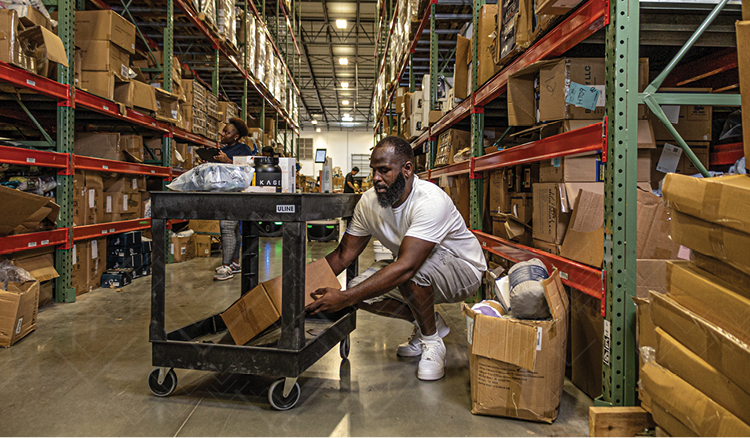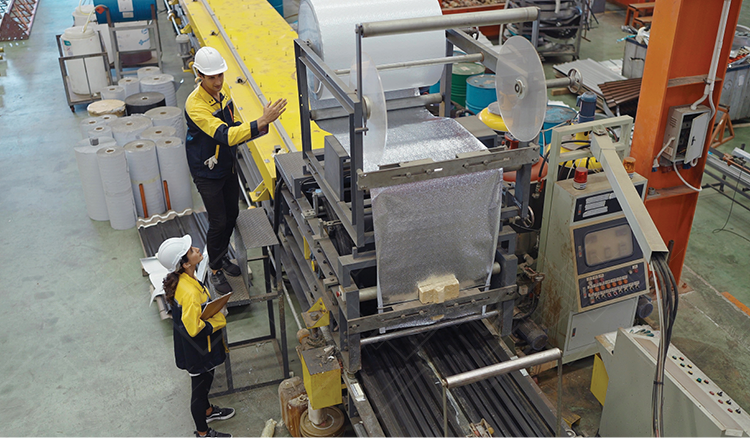What is a Temp Agency? Definition, Pros & Cons, Alternatives
When you need more workers to get the job done, but you know you won’t need their help in a few months or even weeks, that’s a tough spot to be in from a hiring perspective. Thus the temp agency was born. But what exactly does a temp agency do, and how can it help your business?
Veryable works with various roles from manufacturing and supply chain operations every day who feel the pain of having to find workers for short-term engagements. We provide an on-demand labor platform to solve this problem, so we might be biased. On the other hand, it means we have a strong interest in understanding how temp agencies work so that we know how we stack up in comparison. We want to share what we’ve learned in this article so you can make the best choice for your business.
By the end of this article, you will understand what a temp agency is, the pros and cons of the solution, and alternative ways to find talent.
Contents:
- What is a temp agency?
- Pros and cons of temp agencies
- Alternatives to temp agencies
- Avoiding common problems with finding temp workers
What is a temp agency?
A temp agency, or temporary employment agency, is a firm that connects businesses to workers for temporary or contract work. A temp agency charges businesses for the workers it finds to fill roles, and the workers are employed by the temp agency. This arrangement lets workers find short-term and low-commitment opportunities while businesses avoid hiring and firing a full-time employee to fill a short-term need.
Pros and cons of temp agencies
The pros of temp agencies
- Simplicity is a benefit of working with a temp agency if your alternative would be hiring and firing part-time employees repeatedly. Instead of handling piles of paperwork in your own company, you could pay the temp agency to handle those administrative duties. That is because the temp agencies will employ the workers and handle the responsibilities that come with their employment.
- Finding workers fast is often easier with temp agencies than it would be to do so yourself. Temp agencies typically have a large pool of workers they have already screened. They do the work of filtering resumes, conducting preliminary interviews, and other screening methods to save you the time of doing these common hiring chores.
- Trying new workers before hiring them full-time is a common reason you might consider for using temp agencies. If there is a worker the temp agency sends to the job and you think they have great potential, you could talk to the agency to discuss hiring the employee at your company. There might be a fee associated with this decision, but it is one additional way to find full-time workers if you need them.
The cons of temp agencies
- Temp agencies often require contracts with stipulations such as usage requirements, which means you might still end up overstaffing just to meet their demands.
- You have little insight or control over which workers show up. You don’t get to see the full pool of potential candidates for your job, because temp agencies offer a mostly hands-off approach to finding workers. If you prefer to know all your options for potential workers, this might not be a great fit for you.
- Temporary workers might not be as heavily incentivized to do well as your part-time or full-time employees. Due to the temporary nature of engagements these workers expect, and the fact that they are employed by the temp agency and feel security in that, they might treat their time at your company as just one more stop on their route. If the temp agency does not closely monitor performance reviews for their workers and weed out the underachievers, you might end up with low performers on a regular basis. This problem will be hard to fix without insight into the workers beyond what the temp agency tells you.
- Additional costs come with using a temp agency. If you are trying to keep costs down, using a temp agency to find workers can be more expensive than finding workers yourself or using some of the alternatives listed below.
Alternatives to temp agencies
Find employees yourself
The most involved choice you have is to find workers yourself. This gives you the most control over who you hire, but also comes with extra work on your part. The popular approach to finding workers for yourself is likely one you’re familiar with: posting to all the job sites online and putting up “now hiring” signs around town. Then you review the resumes and pick out a few people to interview before taking a leap of faith and hiring someone. It’s a lot of work, but not a foreign concept.
Find contractors yourself
If you’re still interested in temporary workers but don’t want to partner with another company to find workers, you could do the searching yourself for independent contractors. You can find independent contractors on traditional job boards, like Craigslist or Indeed, but this will require more work from you than some of your other options would. With all the posting and following up, this quickly becomes a time-consuming process just to find someone to work short-term.
Staffing companies for recruiting and screening
Some staffing companies differ from temp agencies because a specialized staffing company can find candidates that you hire, rather than the agency employing the worker. A staffing company will work much like a temp agency in most other aspects of the relationship, including the more hands-off approach for you. However, a staffing company might not be able to find a worker as quickly as a temp agency.
They will do the work of screening and evaluating skill sets, and only bring you candidates they feel are a good match. This comes at a cost, but is still going to be less work on your end than hiring someone yourself.
On-demand staffing companies
On-demand staffing is a relatively new idea. These companies are technology driven and quickly find temporary workers for you. They allow you to set the duration of the work needed, and quickly invite pre-screened workers to help out.
You could work with one of the best on-demand staffing companies, or if you have a manufacturing and logistics operation, you might benefit from a solution more tailored to your vertical, like Veryable.
On-demand labor
On-demand labor is what we call our labor solution specifically for manufacturing and supply chain operations. We are different from staffing companies because our platform is an operational tool that enables companies to respond to demand rather than relying on the guesswork of planning headcount based on averages.
The main difference between on-demand labor and traditional staffing is that on-demand labor is best used to increase flexibility and respond with agility to demand, whereas traditional staffing is better for keeping the same headcount or finishing one-time projects.
Avoiding common problems with finding temp workers
There are two big problems with finding temp workers, no matter which solution you choose for finding them. Uncertainty about the skills and background of individuals as well as the inability to select desired workers are both big problems with temp staffing. Read about these two big issues with temp labor and how to solve them with a solution like on-demand labor, so you’re ready to move forward with flexibility and operational agility.
If you want to read more blog articles about on-demand labor vs. temp staffing, click here
Previous Posts
How Policy Constraints, Not Just Production Bottlenecks, Threaten Your Bottom Line
The Future of Manufacturing and Logistics
Create a free business profile today to explore our platform.






